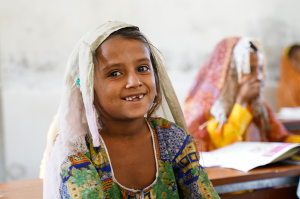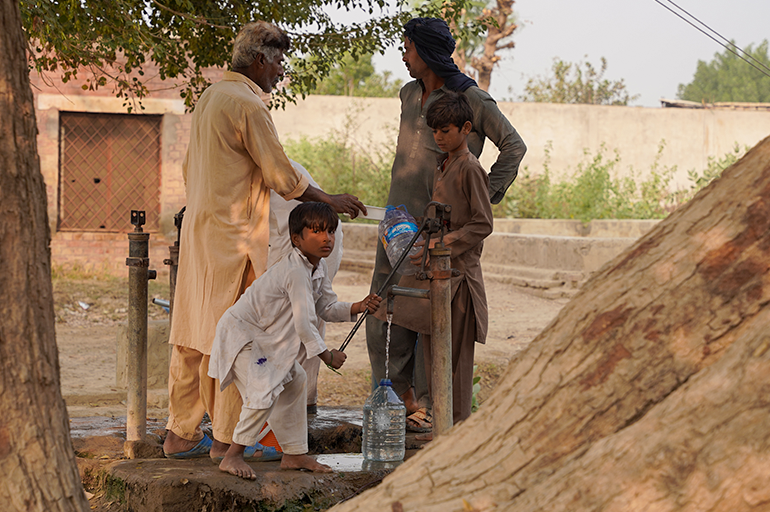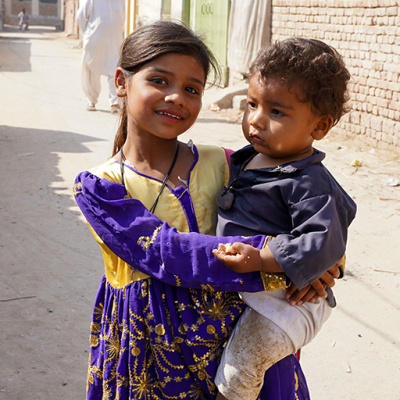Access to clean water is a fundamental human right and a critical component of public health, particularly in rural areas where resources are often limited. PAKCR has taken significant strides in addressing the urgent need for clean water solutions in these communities. Through innovative projects and dedicated efforts, PAKCR is not only improving water quality but also enhancing overall health outcomes for rural populations. This article explores the impactful clean water initiatives led by PAKCR, examining their significance in promoting better health, sharing success stories from beneficiaries, and highlighting the challenges faced in these efforts.
Overview of PAKCR and Its Mission
Background of PAKCR
The Pakistan Children Relief (PAKCR) is a non-profit organization that emerged from a pressing need to tackle the water quality crisis in rural areas. Founded by a group of passionate activists and professionals, PAKCR aims to ensure that every individual, regardless of their geographical location, has access to safe and clean drinking water. After witnessing the detrimental effects of contaminated water firsthand, the organization set out on a mission to transform lives by improving water infrastructure in underserved communities.
The Importance of Clean Water in Rural Health

The Link Between Water Quality and Health
Clean water is not just a luxury; it’s a fundamental necessity for a healthy life. Poor water quality can lead to a whole host of health issues, including diarrhea, cholera, and other nasty surprises that no one wants to deal with. When communities have access to safe drinking water, they experience not just immediate health benefits but also long-term improvements in productivity and quality of life. It’s like giving a superpower to a village suddenly, people can go about their days without worrying about what they drank in the morning!
Statistics on Waterborne Diseases
Statistics show that waterborne diseases are responsible for an overwhelming number of illnesses in rural areas. According to the World Health Organization, around 2 billion people drink contaminated water, leading to approximately 485,000 deaths from cholera each year. In Pakistan, water-related ailments account for a significant portion of hospital visits, often overwhelming local health systems. It’s a sobering reminder that access to clean water is not just about convenience – it’s about survival.
Key Clean Water Projects Initiated by PAKCR
Project Descriptions and Objectives
PAKCR has launched several impactful clean water projects designed to meet the unique needs of various rural communities. These initiatives include the installation of solar-powered water filtration systems, the construction of boreholes, and the implementation of rainwater harvesting systems. Each project comes with clear objectives: improve water quality, reduce reliance on unsafe sources, and educate communities on water conservation. It’s like a hydration makeover for the whole region!
Geographical Focus Areas
The clean water projects primarily target rural areas in regions with the highest rates of waterborne diseases, such as Sindh and Balochistan. These areas often suffer from limited resources and extreme weather conditions, making access to clean water even more critical. By concentrating efforts in these geographical hotspots, PAKCR aims to create ripple effects that not only improve local health outcomes but also inspire neighboring communities to follow suit.
Impact of Clean Water on Community Health Outcomes
Reduction in Waterborne Illnesses
The introduction of clean drinking water in Pakistan has yielded impressive results in terms of health outcomes. Communities that once struggled with high rates of waterborne illnesses have reported significant reductions in diseases like diarrhea and typhoid fever. Preliminary data show that areas with PAKCR projects have seen a drop of up to 40% in reported cases of these ailments. When you think about it, that’s a lot less suffering and a lot more thriving!
Improved Hygiene Practices
With clean water comes better hygiene practices. PAKCR’s efforts don’t just stop at providing safe drinking water; they also educate communities about the importance of sanitation and hygiene. Access to clean water enables families to maintain better personal and household hygiene, contributing to a noticeable decrease in illness. People are washing their hands more often, children are healthier, and communities are learning to embrace practices that promote overall well-being. It’s a win-win that has everybody cheering!
Challenges Faced in Implementing Clean Water Solutions
Infrastructure Issues
Imagine trying to build a sandcastle without sand—yup, that’s the kind of challenge PAKCR faces with outdated and crumbling infrastructure in rural areas. Many regions lack the necessary pipes and filtration systems, making clean water access feel like a game of hide-and-seek. To tackle this, PAKCR is working on getting creative with local resources and engaging communities to help build better systems.
Community Engagement and Education
A clean water system is only as good as the people who use it. It’s like giving a fish a bicycle, not very helpful, right? Community buy-in and education are essential. PAKCR has found that some residents need convincing; they want to understand why they should trade their bucket for a tap. Through workshops and demonstrations, they’re making the case that clean water equals better health…and fewer trips to the doctor!
Future Directions for PAKCR’s Clean Water Initiatives
Upcoming Projects and Plans
PAKCR is not stopping at just a few successful projects. They have exciting plans bubbling up like a wellspring! Upcoming initiatives include expanding the clean water infrastructure to more remote villages and integrating sustainable practices, such as rainwater harvesting. They aim to have every community saying, “Water? Yes, please!” in the next few years.
Partnerships and Collaborations
Two heads are better than one, and PAKCR knows that well. They’re actively seeking partnerships with local governments, NGOs, and even tech companies fierce about innovative solutions for rural water access. By pooling resources and expertise, they’re stirring the pot for more comprehensive and lasting clean water solutions.
How to Support and Get Involved with PAKCR
In conclusion, PAKCR’s clean water projects are making a profound difference in the lives of rural communities, promoting healthier environments and reducing the prevalence of waterborne diseases. The ongoing commitment to providing sustainable water solutions not only improves health outcomes but also empowers individuals and families to thrive. As we look to the future, continued support and collaboration will be essential in expanding these initiatives and ensuring that access to clean water remains a priority for all. Together, we can help build a healthier and more resilient future for rural populations.
FAQs
What specific clean water projects has PAKCR implemented?
PAKCR has initiated various projects, including the installation of water filtration systems, construction of wells, and community education programs on water hygiene and sanitation.
How can individuals contribute to PAKCR’s clean water initiatives?
Individuals can support PAKCR by donating, volunteering their time, or participating in fundraising events to help finance clean water projects.
What impact does clean water access have on rural health?
Access to clean water significantly reduces the incidence of waterborne diseases, improves overall hygiene practices, and enhances the quality of life in rural communities.
Are there any partnerships involved in PAKCR’s projects?
Yes, PAKCR collaborates with local governments, NGOs, and international organizations to implement and expand its clean water initiatives effectively.



